Restored Hope Network — What to Know Before You Go
The annual conference for Restored Hope Network (RHN) is June 16-17 in San Diego, California. The mission 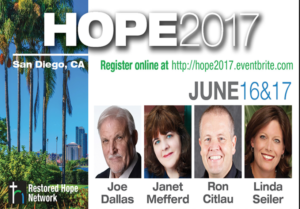 statement of RHN, a coalition of 58 member ministries, makes it clear that a non-heterosexual orientation is outside the will of God (meaning sinful and perverted) and that one can not be both lesbian, gay, bisexual or transgender (LGBT) and Christian (“a life committed to unrepentant, sexual immorality is evidence of a life not lived by saving faith,” from RHN Mission Statement).
statement of RHN, a coalition of 58 member ministries, makes it clear that a non-heterosexual orientation is outside the will of God (meaning sinful and perverted) and that one can not be both lesbian, gay, bisexual or transgender (LGBT) and Christian (“a life committed to unrepentant, sexual immorality is evidence of a life not lived by saving faith,” from RHN Mission Statement).
The target market of the organization includes: those who have same-sex attractions (gays, lesbians, and bisexuals – though RHN will not typically uses such terminology. They prefer to use: "same-sex strugglers" or "same-sex attracted" and fully ignore those who are bisexual): families with LGBT children; couples in mixed-orientation marriages (one spouse is straight and the other is not); pastors, pastoral staff, and ministry leaders.
RHN came into existence when several Exodus International member ministries concluded that their differences with the parent organization were irreparable. They resigned before the collapse of Exodus and formed their own ministry, Restored Hope Network.
In October 2012, I attended RHN's inaugural two day conference and wrote a detailed four-part series. To understand RHN's background and their philosophy, you may want to invest some time reading that series.
____________________________
The series:
Back to the Start | The Real Roots of Exodus
Back to Bondage | The Restored Hope Network Exits Exodus
Back to the Closet | Restored Hope Network on Homosexuality
Back to Relationship | Gay Christians in the Church
_____________________________
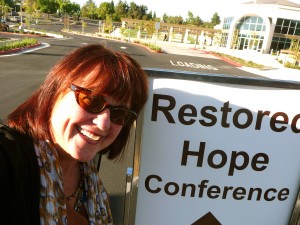
At the RHN Conference, 2012
This post is aimed at those who are considering attending the conference, aligning with RHN's member ministries or using their services or resources. In particular, for those considering attending the San Diego conference, along with the aforementioned series, here is some other information you might want to know before you go.
The keynote speakers for the upcoming conference are Joe Dallas, Ron Citlau, and Linda Seiler. For each speaker, I've read their latest books, watched select online presentations, and/or read a number of their writings and blogs to familiarize myself with their teachings and stories.
Things to “know before you go” about Joe Dallas
Over the past 25 years, Joe Dallas has built a career in speaking, writing and counseling gay and lesbian Christians, their families, and 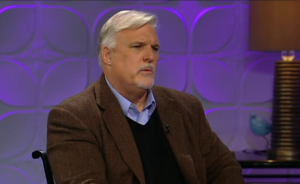 churches. He has authored eight books since 2003 and has a counseling business in Orange County, California.
churches. He has authored eight books since 2003 and has a counseling business in Orange County, California.
Recently, I read his two latest books, Speaking of Homosexuality (2016) and When Homosexuality Hits Home (2015).
__________________________________
Speaking of Homosexuality (2016) Review on Amazon
When Homosexuality Hits Home (2015) Review on Amazon
__________________________________
Besides reviewing each of Dallas' books extensively, I further wanted to know his counseling qualifications. What I found surprised me. I assumed he had a license and professional training in the area of human sexuality. Both assumptions, however, are incorrect.
I know hundreds of gay people and their families who have counseled directly with Dallas and countless others who have been impacted by his books, presentations and teachings. Though he clearly states on his website that he is a biblical counselor, most former clients believed he is trained and licensed to do therapy work.
Even his fees reflect a level of expertise. He charges $100/hr for counseling, $90 on the phone, $50 for four emails, $500 for parents' 10 session online support groups, $1,000 for “struggling” men for a two-day intensive session, $1,200 for two days for a couples' intensive session.
Of his past, Dallas writes, “I’d been a staff member with a pro-gay church, an openly gay man, and an activist, identifying as a gay Christian, arguing for the acceptance of homosexuality.” There are a few details Dallas conveniently leaves out of the frequent telling of his story. (Source: online interviews directly with JD)
He grew up in Southern California, and by 8th grade was having sex with boys and girls and using drugs. By the age of 15 in 1971, he was also having sex with adult men.
Dallas writes in his books and frequently says when he speaks that he was “on staff with a local gay church and preached that homosexuality and Christianity were compatible, then finally, after six years of self-delusion, repented at 29.”
Dallas, saved as part of the Jesus movement, had a conversion experience at 15 at Calvary Chapel, Costa Mesa. At 18, he was ordained at Calvary Chapel and worked in the music ministry, did counseling, conducted weddings and funerals, and got married to a woman. As the church began to develop internal problems, Dallas and his wife left for secular jobs.
He got involved in pornography, went to female and male prostitutes, had an affair with a friend’s wife (she got pregnant with Dallas’ child and had an abortion), ended his marriage, started drinking heavily, and had an extended relationship with a man.
In his search for renewed faith, he went to a Metropolitan Community Church (gay-affirming), where he was involved in worship, but was not on staff. At the age of 29, Dallas went back to Calvary Chapel, started seeing a Christian counselor, and got interested in Christian counseling as a profession.
Dallas received a Masters in Christian counseling at Vision Christian College near San Diego, a school unaccredited by the U.S. Department of Education (the current price for this degree is $5,400), first intending to work in the field of drug and alcohol rehabilitation. Finding no jobs, he interned at a “little Christian counseling center, which was counseling people who were struggling with homosexuality and with pornography.”
Dallas married his second wife who joined him in ministry work in 1992.
He has had no formal training or degree in the area of human sexuality or therapeutic counseling. He is not licensed by a recognized mental health therapy organization.
It is noteworthy to mention that most experts in human sexuality recognize a spectrum of natural sexual orientation from homosexuality to heterosexuality, including bisexuality. Though none of us gets to label another person’s sexual identity because it is a personal issue, it is highly problematic, yet simultaneously convenient, when “ex-gays” such as Dallas completely ignore the category of bisexuality (having a natural attraction to men and women).
Conversion to Christianity certainly did transform Dallas’ life of sexual excess and substance abuse. It is far less likely to have altered his innate sexual orientation.
Of concern, lately, Dallas seems to be newly positioning himself with a launching of a splashier ministry website. The new site appears to be re-focusing on sexual purity for men and their struggles with pornography. His teachings on the damaging effects of pornography and adultery may well be productive, but, where Joe goes, along go his damaging messages, books, and theories about sexual orientation.
Things to “know before you go” about Ron Citlau
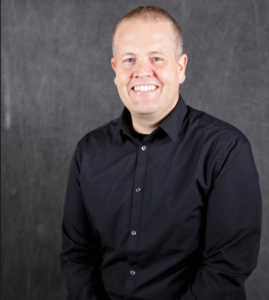 Ron Citlau is the lead pastor of Chicago's Calvary Church under the Reformed Church in America denomination. He recently authored “Hope for the Same-Sex Attracted” (2017), and co-authored “Compassion without Compromise” (2014). Citlau, a married father of four, calls himself a “same-sex struggler.”
Ron Citlau is the lead pastor of Chicago's Calvary Church under the Reformed Church in America denomination. He recently authored “Hope for the Same-Sex Attracted” (2017), and co-authored “Compassion without Compromise” (2014). Citlau, a married father of four, calls himself a “same-sex struggler.”
___________________________________
Hope for the Same-Sex Attracted by Ron Citlau — A Book Review
Compassion without Compromise (Bethany House, 2014) by Adam Barr and Ron Citlau — A Book Review
___________________________________
Citlau does not believe you can be both gay (identified, or in a sexual relationship) and be Christian. He believes there are three obstacles that stand in the way of God giving His gifts to “same-sex strugglers” (a term that Citlau uses to gross excess in his writing and speaking. The term often appears over six times on a single page of his books.) The three obstacles to being in relationship with God are: identifying as a gay Christian, being in gay marriage, and the "spiritual friendship" movement.
Citlau suggests five “biblical gifts” which are available to same-sex strugglers to help them deal with their attractions: the gift of the church, the gift of therapy, the gift of singleness, the gift of marriage, and the gift of lament. (I fully cover this in my review.)
Citlau, who admits he is still same-sex attracted, shares what God has done for him and “wants to do for everyone who will give their life to him (Jesus).”
In his writings, Citlau cites several mixed-orientation marriages (my word, not his, he is slow to acknowledge orientation at all) as success stories. While reading his book, I finally realized why Citlau looked so familiar. He too attended the inaugural conference of the Restored Hope Network (RHN), as did I in September 2012. While I respect that Citlau’s marriage story belongs to him, it most certainly does not typify the story of strictly homosexual people who have tried to heterosexually marry.
There was a distinct vibe I felt at the 2012 RHN conference where about 40% of the 125-ish attendees present were in mixed-orientation marriages. There was a lack of joy, spontaneity and playfulness that I sensed in the presence of couples who marry “correctly,” or heterosexually, not according to their natural (non heterosexual) orientation.
Incidentally, I wrote a chapter in my book, “Walking the Bridgeless Canyon” on mixed-orientation marriages. Such unions generally had disastrous results. One caveat to all of this, however: those who are bisexual (an orientation that is utterly unacknowledged by RHN) are attracted in varying degrees across the human sexuality spectrum. They could certainly and successfully marry heterosexually.
If you are considering following Citlau’s guidance for your life, or for the life of your loved one, you may want to invest time reading reviews of book as Citlau wades into “the valley of homosexual brokenness.” (his words)
Things to “know before you go” about Linda Seiler
Linda Seiler, an ordained Assemblies of God minister, speaks about transsexuality from a personal perspective. I’ve watched several of her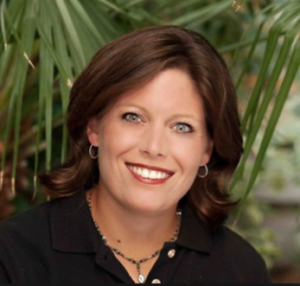 videos. While I know I need to be careful and respectful, there are elements of Seiler's story that just do not line up with the bulk of stories I know and have heard about trans men and women over the years.
videos. While I know I need to be careful and respectful, there are elements of Seiler's story that just do not line up with the bulk of stories I know and have heard about trans men and women over the years.
I’ve probably heard over 150 personal stories of transgender people and most in about this same age range of Seiler, about mid 40s to mid-50s. The accounts of their early lives invariably mention lack of access to information about their conditions. It is certainly not so now; teenagers can go online and find someone "like" them and information. The lack of information and understanding has been a universal common thread for the stories of older transgender persons.
Yet Seiler, who again is in her mid-40s, writes "In the fourth grade, I learned about sex reassignment surgeries and vowed I would have the operation as soon as I was old enough and had the money." Wow, that would have been about at about age 9, in 1985.
She shares another memory from a few years later, at twelve:
“Around seventh grade, I started to consider the logistical difficulties of having sex reassignment surgery. Where would I get the money? How would I tell my family? You can’t just be Linda one day and David the next. I considered running away as soon as I reached adulthood to have the surgery without ever telling my family, but I loved my family, and I didn’t want to live without them. Even though I wasn’t a Christian at the time, I started to have a sense that sex reassignment would not be God’s will for me.”
If Seiler had this level of understanding and comprehension in the mid-1980s as a preteen, she would have been indeed quite extraordinary! While we each have our own testimony, Seiler’s public story screams of both revision and adjustment toward a convenient storyline that fits the transformation-as-possible narrative operating in conservative Christianity.
No professional mental health organization in the U.S. shares Sieler's belief that a person who is indeed transgender (brain and body not in alignment in sex and gender) can become cisgender (body and brain are in alignment of sex and gender).
Seiler speaks publicly on both homosexuality and transgenderism. Her scriptural exegesis is sloppy; she takes verses out of context regularly. Her "reasons" that people are gay and lesbian have been repeatedly and professionally discounted as junk theory. As a warning, if you are going to follow her advise, be fully aware of what she is saying, what she is not saying, and consider that her story is quite atypical of transgender people. Something is rotten in Denmark.
So there you have it. Dallas, Citlau, and Seiler are the keynote experts offered at the 2017 RHN conference.
If you go to the RHN conference, they will tell you that one cannot be both gay or transgender and Christian. I strongly encourage those who consider attending or aligning with RHN and the member ministries, to be informed, educated on their beliefs, research for yourself, try to talk with LGBT Christians if you can, and seek wisdom from God.
[hr]
[UPDATE. Just as I posted this, it was announced that Citlau had withdrawn from speaking at RHN, and from the board of directors of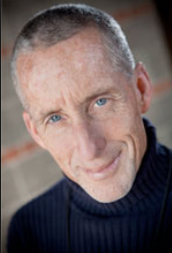 RHN.
RHN.
The statement: “Senior Pastor Ron Citlau and wife Amy have been asked by their denomination, the Reformed Church of America, to take a much-needed break from all ministry commitments for the next several months in order to strengthen the foundations of their life together as a young family of six. RHN accepts Ron's resignation from its Board and blesses this much-needed season of renewal for the Citlau family.”
Andy Comiskey will replace him as a keynote. I address Comiskey in my posts from the 2012 conference.]
